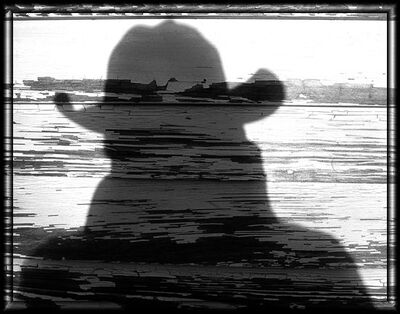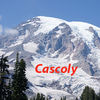Film/slide scanning
Mar 7, 2018 09:14:51 #
G. Crook
Loc: Linden, TX
Perhaps the wrong site but, here’s my question: I have found, literally, a suitcase full of various sizes of slides and negatives, both color and BW (they belonged to my parents). Probably at least 2,000 slides alone with at least that many negatives. I want to digitize them but sending them out would bankrupt me. Any thoughts on a scanner that won’t cost me a small fortune? Thanks in advance.
Mar 7, 2018 10:06:09 #
Mar 7, 2018 10:31:46 #
G. Crook wrote:
Perhaps the wrong site but, hereâs my question: I have found, literally, a suitcase full of various sizes of slides and negatives, both color and BW (they belonged to my parents). Probably at least 2,000 slides alone with at least that many negatives. I want to digitize them but sending them out would bankrupt me. Any thoughts on a scanner that wonât cost me a small fortune? Thanks in advance.
I did over 2,000 slides with my Nik D7000 and 105 macro lens by taping a white paper to the window, using my scanner slide holder clamped to a stand. I set the camera perpendicular to and centered on the slide on a tripod, and using the remote, aperature mode (f/10) converted them in batches.
Here's a sample of the Lake Anif Castle, near Salsburg, Austria, from 1979. (It's in the opening scenes of The Sounds of Music.)
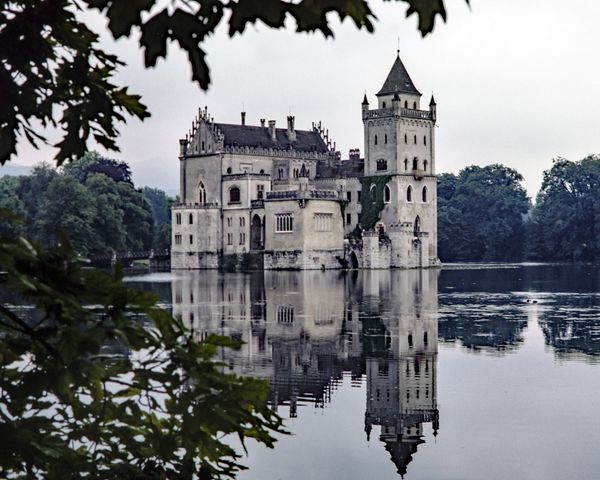
Mar 8, 2018 10:59:38 #
G. Crook wrote:
Perhaps the wrong site but, here's my question: I have found, literally, a suitcase full of various sizes of slides and negatives, both color and BW (they belonged to my parents). Probably at least 2,000 slides alone with at least that many negatives. I want to digitize them but sending them out would bankrupt me. Any thoughts on a scanner that won't cost me a small fortune? Thanks in advance.
A reasonably priced scanner is the Epson V600, which retails for under $240, and can be had for around $169 at times. Epsons are reliable, and they have really good software (if you take the time to learn how to use it, which some impatient people don't know how to do). Scan times are long, but the software can do SOME of the post processing for you (dust and scratch removal, sharpening, negative image reversal, color correction or restoration...). You'll still need to tweak images later, if you're picky.
The biggest advantage of the flatbed scanner is that it will convert prints, slides, black-and-white negatives, and color negatives. The V600 will work with 8x10 and smaller prints, or 120/220/620 size film up to 6x22cm. If you have larger negatives, you need one of the high end Epsons.
The other method you'll find is macrophotography and full manual post-processing. This involves:
• A suitable, color-correct, full-spectrum light source
• A suitable slide or negative holder to keep the film flat
• Film cleaning supplies (PEC-12 film cleaner, PEC Pads, Staticmaster brush, Dust-Off, Giotto Rocket Blower, Ilford Anti-Staticum... I use 'em all)
• A device to align the camera with the film so the image is plano-parallel with the sensor
• A suitable macro lens capable of 1:1 reproduction, or an enlarging lens on a bellows
• DARK surroundings to keep flare under control
• A dSLR or mirrorless camera compatible with the macro lens
• Post-processing software such as Lightroom, Photoshop, Affinity Photo, Capture One Pro...
Short of using a $25,700 Hasselblad Flextight, I've found the macrophotography method to yield the best results. Capture is instantaneous (1/125 second or so), but post-processing takes time and skill. I always save raw images. I have to invert the curves on negatives, and then do cropping, color correction, dust spotting, sharpening... It takes a while for a batch of images. So I have to do it selectively.
If you're just starting out, the Epson V-series flatbeds are the best compromises for the money. Most of the cheaper scanners are pretty awful. The $100 ones are for "snap shooters" who don't care about quality. Heck, if you're that cheap, you can make a slide copier from your smartphone and a piece of PVC pipe with a couple of slots in it! There are videos on YouTube that show you how.
The three samples below were macrophotographed with a 30mm f/2.8 Lumix lens on a Panasonic GH4, using a homemade rig. Post-processing in Adobe Lightroom CC 2015 and/or Photoshop CC 2017.
.
Original from 1986 Ilford HP5 negative (Charleston, SC horse/buggy tour)
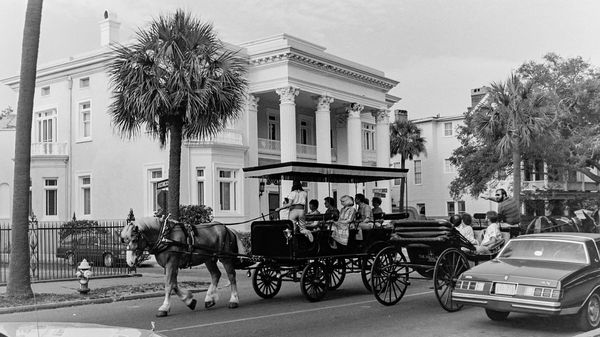
(Download)
1950 Anscochrome slide
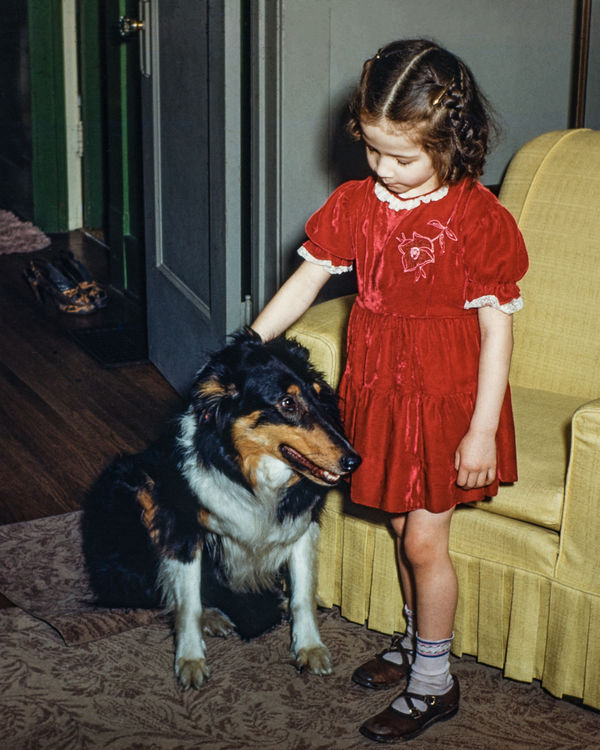
(Download)
Kodachrome 64 slide from 1979
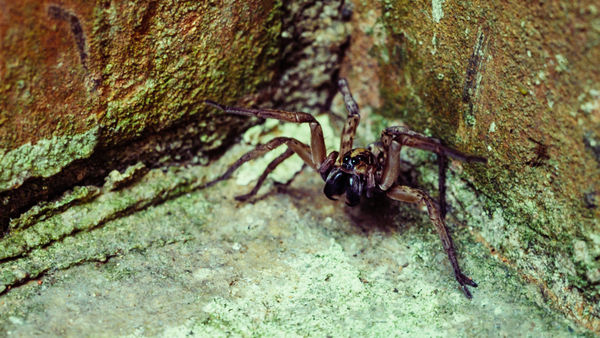
(Download)
Mar 8, 2018 11:12:01 #
I forgot to mention that the very hardest things to copy are color negatives. Every brand, type, and emulsion batch of color negative film has a different color balance, and the lighting under which images were made also affects the color. So achieving neutral or normal or pleasing color can be an elusive process! It takes considerable time and skill in post-processing to reverse and manipulate the RGB curves well enough.
Once you get one negative adjusted, though, you can save your settings to use as a preset for all the negatives on that roll of film that were made in the same light. Plus, those settings will help you get close for negatives on the same roll taken in different light.
What I do is copy everything in raw mode, then batch-invert the tones to positive, using a custom user preset in Lightroom. Next, I evaluate the subjects in Lightroom's Library Module, and pick just those I want to finish. Most rolls of film won't have 12, 24, or 36 significant images... My own historical average is one out of six.
Once you get one negative adjusted, though, you can save your settings to use as a preset for all the negatives on that roll of film that were made in the same light. Plus, those settings will help you get close for negatives on the same roll taken in different light.
What I do is copy everything in raw mode, then batch-invert the tones to positive, using a custom user preset in Lightroom. Next, I evaluate the subjects in Lightroom's Library Module, and pick just those I want to finish. Most rolls of film won't have 12, 24, or 36 significant images... My own historical average is one out of six.
Mar 8, 2018 11:13:29 #
Given scanner speeds, looks like you have a new career. Some while back I saw ads for so-called fast scanners, but the reviews were lousy. Stay with the known goodies: Epsom, Canon, Hewlett-Packard, Microtek. Just make sure to read as much tech specs as you can. In buying used, be aware that the driver software might be incompatible with you computer op sys, especially with Macs. The hitch is that older stuff would be written in 32-bit architecture and newer op sys are in 64-bit architecture. There will be little patches enabliing 32-bit software but speeds suffer.
Mar 8, 2018 12:17:07 #
I own a KodakEktagraphic lll slide projector. It is in perfect working condition. If interested email me at. Tarpon007@att.net for more details. The price is 120 dollars. If interested I will send pictures to your e-mail
Mar 8, 2018 12:45:06 #
G. Crook wrote:
Perhaps the wrong site but, here’s my question: I have found, literally, a suitcase full of various sizes of slides and negatives, both color and BW (they belonged to my parents). Probably at least 2,000 slides alone with at least that many negatives. I want to digitize them but sending them out would bankrupt me. Any thoughts on a scanner that won’t cost me a small fortune? Thanks in advance.
I have already scanned over 5000 frames. If your media has any defects at all, an Epson scanner or a camera attachment {Pentax makes them also} will preserve them perfectly. The best scanner I have is the Nikon unit, no longer produced, that uses multi-scan based parallax to "fix" these issues, and the next-best is one from Plustek {and the included software gets color adjustment reasonably close}
Mar 8, 2018 12:50:59 #
I had a Nikon years ago, but it eventually died. Just yesterday I tried scanning old 35mm slides with an Epson V600. I posted some of the images here:
http://www.uglyhedgehog.com/t-517690-1.html
--
http://www.uglyhedgehog.com/t-517690-1.html
--
Mar 8, 2018 13:16:50 #
Bill_de wrote:
I had a Nikon years ago, but it eventually died. Just yesterday I tried scanning old 35mm slides with an Epson V600. I posted some of the images here:
http://www.uglyhedgehog.com/t-517690-1.html
--
http://www.uglyhedgehog.com/t-517690-1.html
--
Any chance you could post one here and check the (store original) box before hitting Add Attachment?
Mar 8, 2018 13:24:06 #
burkphoto wrote:
Any chance you could post one here and check the (store original) box before hitting Add Attachment?
I could, but it wouldn't help. I edit my pictures for final use. My posted pictures are all 150kb images. The process of framing deletes the EXIF data. I started doing it years ago, when 150kb was the maximum allowed and nobody ever asked about EXIF. For their fleeting lifespan I never saw a reason to change.
--
Mar 8, 2018 13:34:18 #
One thing for new scanner operators to remember when scanning 35mm slides and negatives is that the scanning resolution refers to the number of samples per inch of the ORIGINAL on the scanner glass.
If you need to make an 8x10 print, you need at least 2000x2500 pixels in the file. Many folks use the old graphic arts industry rule of thumb of scanning at 300 dpi rather blindly. That would work for an original 8x10 *print* being scanned for 8x10 (1:1) reproduction at 300 PPI (the image fed to the printer would be 2400x3000 pixels), but it won't work for a 35mm chip of film... unless you wanted a low resolution thumbnail.
To make an excellent 8x10 from a section of 35mm film, you have to scan at a much higher resolution (3000 dpi would give you enough).
If you scan at the maximum optical resolution of a V600 (6400 dpi), you can make a 30"x45" un-cropped print at enough resolution to be viewed from five feet. Of course, the scan will take for-freaking-ever to complete...
If you need to make an 8x10 print, you need at least 2000x2500 pixels in the file. Many folks use the old graphic arts industry rule of thumb of scanning at 300 dpi rather blindly. That would work for an original 8x10 *print* being scanned for 8x10 (1:1) reproduction at 300 PPI (the image fed to the printer would be 2400x3000 pixels), but it won't work for a 35mm chip of film... unless you wanted a low resolution thumbnail.
To make an excellent 8x10 from a section of 35mm film, you have to scan at a much higher resolution (3000 dpi would give you enough).
If you scan at the maximum optical resolution of a V600 (6400 dpi), you can make a 30"x45" un-cropped print at enough resolution to be viewed from five feet. Of course, the scan will take for-freaking-ever to complete...
Mar 8, 2018 14:42:39 #
Somehow I sense that the points being made by Burk can be reduced to some mathematical formula. A film frame of x by y dimension is to be viewed at some u by v dimension at some d distance. Now the human eye has a visual acuity of 1 arc minute. Can these variables combined in such a way to determine the ppi value to scan at? Suppose the indicated ppi is 400, wouldn't scanning at 600 be a waste of time.
burkphoto wrote:
One thing for new scanner operators to remember wh... (show quote)
Mar 8, 2018 16:36:50 #
G. Crook
Loc: Linden, TX
Thanks for all of the information. I have heard that Plustec (?) has good scanners. Thoughts on them? If not I guess I will have to look at Epsons. Years ago I had a Canon flatbed scanner and I was underwhelmed with any scans of papers, etc.
Mar 8, 2018 18:04:36 #
i've got an epson that does a good job, but it's slow - and no way to batch it. also, it's a lot of work pre or post to get rid of dust, scratches, etc
i've also had several thousand images done thru scancafe.com - using their pro service it's about $.25-$.35 per scan AND you only pay for the ones you want - you dont have to pay for scans that turned out to be out of focus, poorly lit for scanning, etc -- i'm working thru a 35K slide collection and will definitely be using them again
s
i've also had several thousand images done thru scancafe.com - using their pro service it's about $.25-$.35 per scan AND you only pay for the ones you want - you dont have to pay for scans that turned out to be out of focus, poorly lit for scanning, etc -- i'm working thru a 35K slide collection and will definitely be using them again
s
If you want to reply, then register here. Registration is free and your account is created instantly, so you can post right away.





